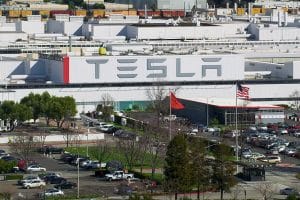- 🗣️ Trump announced Elon Musk will lead a “Government Efficiency Commission.”
- 🤝 Musk has agreed to be part of this commission, indicating his willingness.
- 🇺🇸 The commission will aim to audit federal government performance and recommend reforms.
- 🗓️ This is the first public confirmation of the commission’s potential creation.
- 🎙️ Musk expressed enthusiasm for serving the country during a podcast interview.
- 🤔 Previously, Trump was unsure about Musk’s availability for government roles if re-elected.
In an intriguing development, former President Donald Trump announced that tech mogul Elon Musk has agreed to lead a newly proposed “Government Efficiency Commission.” This commission is tasked with conducting a comprehensive audit of the federal government’s financial and performance metrics, aiming to drive significant and necessary reforms.
Understanding the Role and Vision of the Government Efficiency Commission
The announcement made by Donald Trump highlights a bold move to revolutionize the workings of the federal government through the Government Efficiency Commission. The objective is to conduct a thorough evaluation of existing government operations, identify inefficiencies, and propose actionable recommendations for reform. This initiative represents a significant step in addressing issues of bureaucracy and focuses on delivering value through productivity and performance improvements.
The Driving Forces Behind the Commission
- 🗣️ Trump’s Vision:
- A commitment to reforming and optimizing the federal government’s workflow.
- Emphasis on performance audits to ground reforms in data-driven insights.
- 🤝 Elon Musk’s Involvement:
- Musk brings a unique perspective with his track record of innovation and efficiency in business operations.
- His willingness to participate suggests potential for integrating cutting-edge technology and methodologies into government practices.
Assessing Elon Musk’s Role in Government Efficiency
Elon Musk, renowned for disrupting industries with innovative strategies, holds the potential to infuse the commission with visionary leadership. Here’s an insight into how his approach might shape the commission’s direction:
- Innovation and Technology: Musk’s background suggests that he may advocate for the adoption of new technologies to improve governmental processes.
- Data-Driven Decisions: His businesses are driven by metrics and data analytics, highlighting the potential for implementing analytical tools in government auditing.
- Sustainability and Resources: Musk’s focus on sustainable practices could bring fresh perspectives on resource management within federal operations.
Key Challenges and Opportunities
Introducing such innovative approaches into the government sector isn’t devoid of challenges. However, this collaboration between Trump and Musk opens several opportunities for enhancing operational transparency and efficacy.
Potential Challenges
- Organizational Resistance: Addressing resistance from established structures may require careful stakeholder management.
- Implementation Complexity: Streamlining processes necessitates in-depth understanding and strategic planning.
Opportunities for Improvement
- Increased Accountability: A clear audit can drive accountability within government entities, leading to enhanced trust from the public.
- Cost Efficiency: Identifying and rectifying inefficiencies could result in substantial cost savings for taxpayers.
- Quality of Service: Improved processes can potentially elevate standards of public service delivery.
Public Reception and Political Implications
Since this announcement marks the first public confirmation of such a commission, opinions are divided. While some view this as a promising alliance with the potential to revolutionize government work dynamics, others remain skeptical about the feasibility and impact of these potential reforms.
Political Implications
- Bipartisan Considerations: Successful implementation may require bipartisan support to ensure broad acceptance and enduring policy impact.
- Long-term Governance Impact: If executed effectively, this initiative could serve as a model for future administrations, embedding efficiency into government DNA.
Conclusion: Paving the Way for Governmental Transformation
The collaboration between Donald Trump and Elon Musk on the Government Efficiency Commission represents a fusion of political aspiration and entrepreneurial innovation. As this commission aims to audit and propose critical reforms, it could set the stage for transformative changes in government efficiency. As the commission progresses, the potential for long-lasting impacts on the governance landscape remains substantial.





